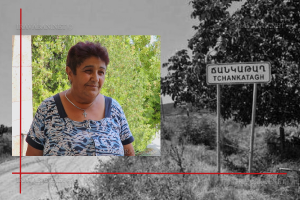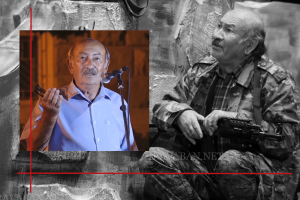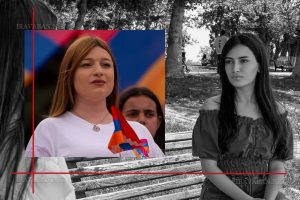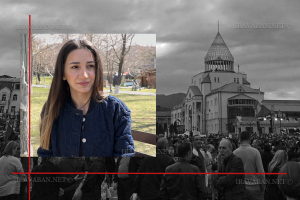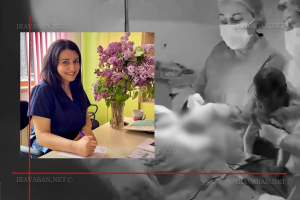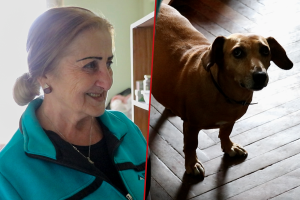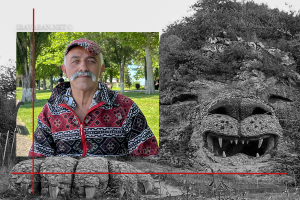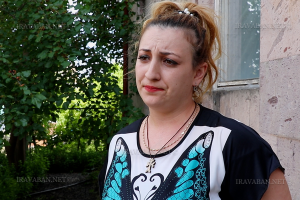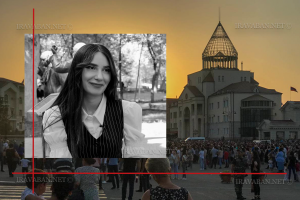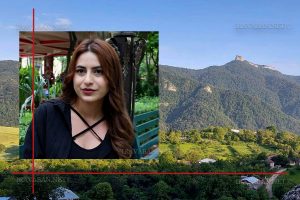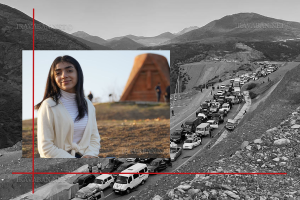Aida Adamyan, forcibly displaced from the occupied Republic of Artsakh, told in the framework of “Artsakh: Armenian Genocide 2023. Stories of Survivors” documentary project of Iravaban.net, that she had been forcibly displaced from Baku as well.
“I got married in Baku in 1977 and lived there until 1988. Then we came to Armenia. I worked in one of the kindergartens in Baku. It turned out that within three days, the mother-in-law, the father-in-law, my husband, and I were all fired from work, and the children were expelled from school. We went to Hadrut with nothing. I stayed in the houses of different people for 20 years. After 20 years, we were provided a house in Togh village. My husband died, and everything was left on me. Then the enemy took Hadrut, we ran away and came to Stepanakert,” she said.
After another aggression of Azerbaijan on 19 September, Mrs. Aida’s grandchildren did not come from their positions, they fell into a siege.
“So if you only know what days I have gone through. One comes in some three days, another comes in two days, on foot through the forests. We were already on our way when the explosion of the Stepanakert fuel warehouse happened. We did not have fuel, my son told us to go back and get it. We went back, we saw so many things, and we heard that we have so many victims. We were on the way for 3 days,” our interlocutor said.
According to Ms. Aida, they were shooting from all sides: from the north, from the south.
“After that, we left the building with a broken hearts, one crying, the other shaking. We were told that, a fight had started. A fight started, where should I go now? My children are not there; my son is not at home. Well, I said, whatever happens now, we have to wait until my children come. We spent time in basements, but I could not stay in the basement. My daughter-in-law said, “Where are you going?” I said, let something happen to me, but I cannot stay here,” she said.
Our interlocutor also told about living in a blockade for about 9 months, noting that she spent the whole days in queues.
“What was that bread like: even the pig would not eat it. Bran mixed with corn. The rough corn husk remained inside. My hands were burning from prickles. It turned out that they didn’t give bread, but dough. There was nothing, the shops were empty. They brought goods from the villages, expensive, and with high price. One egg was 700 drams. But we still said it will be fine in the end. Artsakh will finally be given a status. We took everything, stayed silent. We said in the square that we will do everything, as long as we stay in Artsakh. While crossing the Hakari Bridge, I was very afraid for my children. If they were a participant in the fight, they would take them. I would like to return to Artsakh, but not as part of Azerbaijan. Now there are several Karabagh people who stayed there, I know one of whom, he is my close neighbor. He has no right to pick up the phone, talk to his relative, his neighbor, his friends. What does it become, is it life?” she said.
Aida Adamyan says that what had taken place was a genocide, except that they escaped by cars.
“Unorganized, no one was in control, there was no ambulance, no police. The car went half a meter and stopped. A person was getting worse, a person died, I saw it, my son saw it, my son said, “Mom, I tied the scarf.” A child died, they put it in a trunk,” this is how Mrs. Aida describes the migration path.
Her family was seperated. They do not have a house for everyone to live together. Now Mrs. Aida is asking for a house.
——————————————————————————————————————
“Artsakh: Armenian Genocide 2023. Stories of Survivors” documentary project of Iravaban.net is aimed at collecting the memories and testimonies of citizens forcibly displaced from Artsakh occupied by Azerbaijan, about the genocide of the Armenians of Artsakh committed by Azerbaijan, atrocities, the days of war, the path of deportation, etc.
Iravaban.net seeks help from citizens who will voluntarily agree to translate materials into different languages: Russian, English, French, Arabic, Persian, Turkish, Georgian, Chinese…
You can write to our e-mail address at: [email protected]
To donate for realization of the project: https://iravaban.net/en/become-a-supporter
Details in the video.
Armenian Lawyers’ Association is the author of the idea “Artsakh: Armenian Genocide 2023. Stories of Survivors” documentary project of Iravaban.net and is the owner of copyright of the materials created within the framework of the project. In case of using the materials produced within the framework of the project, it is necessary to obtain the written permission of the Armenian Lawyers’ Association.
Hasmik Sargsyan

